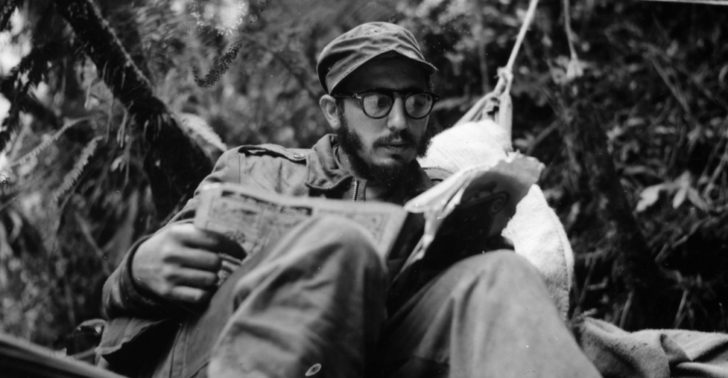
Fidel Castro and history
HAVANA — Although he himself predicted it in his final public appearance, Fidel Castro’s death has not failed to affect the Cuban people and the rest of the world.
Several times Fidel confessed that he hadn’t expected to live so long. And he was right, not for biological reasons but because hardly anyone else took more chances during his lifetime and nobody was the target of so many assassination attempts.
Fidel was an invincible soldier, a high-ranking intellectual and an extraordinary politician, but none of these qualities are sufficient to characterize the dimension of his figure. Fidel’s greatness lay in the fact he was a universal Cuban and a man ahead of his time.
Three attributes characterize his political trajectory: a patriotism that placed Cuba at the epicenter of world politics; an anti-imperialist vocation that he inherited from José Martí; and his international solidarity, which led him to wage combats anywhere and to “invade” the Third World with Cuban doctors and teachers.
Fidel was a man of many peoples, and only an ignorant or a fanatic could ignore his weight in contemporary history.
Around his person, in Cuba or any other country, gathered multitudes to listen to him or simply look at him up close, aware that they were witnesses to a transcendental event. There’s no place on earth where his name is not known.
He won battles that seemed chimeric and, on the margin of any other consideration, at his death he has left a sovereign and independent country with a universal prestige that constitutes its best defense. A people healthy and well-educated as few others and a sense of national dignity that has caused even his enemies to experience the pride of being Cuban.
Several generations of us Cubans were raised under his leadership and I’m sure that many share the feeling that it was a privilege for them to have been contemporaries of Fidel Castro and to have been by his side in good times and bad, sharing dangers and sacrifices.
Another history of Fidel Castro is just beginning, same as happened with Che. For sure, his image will appear in any corner of the world where a cry arises for justice, and the mediocre politicians — who, unfortunately, abound — won’t know what to do “with that ghost who wanders the world.” Now that so much is said about “legacies,” this will be Fidel Castro’s legacy to the future.
There will be time to delve deep into his thoughts, where much can be found, as well as to look for achievements and errors that may serve as experience, but now it is proper to pay homage to an exceptional man who left his mark on the lives of many people, in Cuba and abroad.
“To honor others honors one,” said José Martí, and thus have acted all world leaders and personalities, regardless of their ideological differences or political stances. The exception is a gentleman named Donald Trump, who, by virtue of “American democracy,” will be the next president of the United States.
We shouldn’t be surprised by his insults (they have offended people of every kind, in fact) but it seems that Trump is designed to break every ethic rating. He has been wrong many times and has just done so in his first diplomatic test, demonstrating that the fears awakened by his ignorance and arrogance are not unfounded.
Graver still is the fact that he has brought to the surface his human misery: he who does not respect an adversary who dies with dignity does not respect himself.
Let us hope that, during his apprenticeship as a leader, Trump will come to understand the importance of respecting the feelings of nations, especially the Cuban nation, which apparently he has confused with a group of delirious malcontents who, oozing hatred and impotence, have organized macabre feasts in Miami.
In any case, he will feel the international contempt; he will see himself isolated in the world and criticized in his own country. The moral is that the response to his insults will be another victory by Fidel Castro.
It is lamentable that this precedent could endanger the advances made in relations between Cuba and the United States, because they benefit both nations.
Let us hope that the pressure of those who advocate coexistence will keep him from continuing on that path, but, whatever happens, living without the United States — even living against it — won’t be anything new for us Cubans.
Jesús Arboleya, a frequent contributor to Progreso Weekly / Semanal, is a former Cuban diplomat who was stationed in Washington, D.C., and New York.

